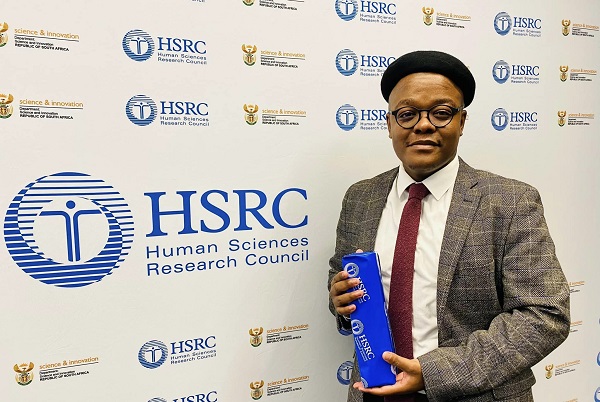In a noteworthy seminar hosted by the School of Social Sciences at the North-West University (NWU) on Friday, 4 April, Dr Pedro Mzileni, a senior lecturer in the Department of Sociology at the University of Zululand, delivered a captivating case study on the “Coloniality of academic freedom” in South Africa’s higher-education sector.
In the light of his personal experience as a Sociology lecturer at the University of the Free State (UFS) from November 2022 to December 2023, Dr Mzileni offered a blunt critique of the ways in which certain universities still suppress African-centred research. He reflected on the systematic challenges he faced while advocating for decolonial, Afrocentric, Pan-African, feminist, and Black Consciousness-aligned perspectives in his academic work.
Dr Mzileni argued that although section 16 of the South African Constitution promises academic freedom, scholars whose research challenges colonial legacies and racialised systems do not equally enjoy this freedom.
“Universities, influenced by historical practices, sometimes emphasise specific cultural perspectives over others. This can unintentionally marginalise diverse cultural and intellectual heritages, impacting students' sense of belonging and their ability to contribute to their communities,” he stated.
He challenged what he perceives as the restrictive research topics imposed on black academics such as potholes and service delivery, and state capture. Dr Pedro describes these topics as diversions from more profound, unresolved questions about systemic racism, academic violence and land dispossession.
“Once you challenge the legacy of land expropriation or advocate for Pan-Africanist thought, the system resists because you are no longer centring whiteness. You are exposing a historical imbalance that remains largely unaddressed.”
Dr Mzileni’s experience at the UFS, marked by what he described as institutional abuse, harassment and racial discrimination, which led to his official suspension, served as the foundation of his case study. He emphasised the importance of academic communities resisting intellectual silencing. “I would have not made it through without a community of scholars committed to truth and justice. We need collective support to stand against institutional marginalisation.”
Dr Pedro argued that his vison for the role of academics in society should be to go beyond the pursuit of neutral knowledge. “Being an academic means having the courage to name injustices, to clarify uncomfortable truths, and to voice what society is often afraid to confront,” he added.
His concluding remarks were a bold call for action: “Academic freedom must not be reduced to a professional courtesy. It is a human right, and we must safeguard it, particularly for those speaking from margins of power, who represent the voices of historically excluded communities.”
The seminar brought together academics and students from across South Africa to reflect on how the promise of transformation in higher education remains incomplete without addressing the lasting impacts of colonialism and systematic racism. Dr Mzileni’s insights were a reminder that the fight for educational justice is still ongoing, and that academic solidarity is essential to bringing about meaningful change.

Dr Pedro Mzileni
